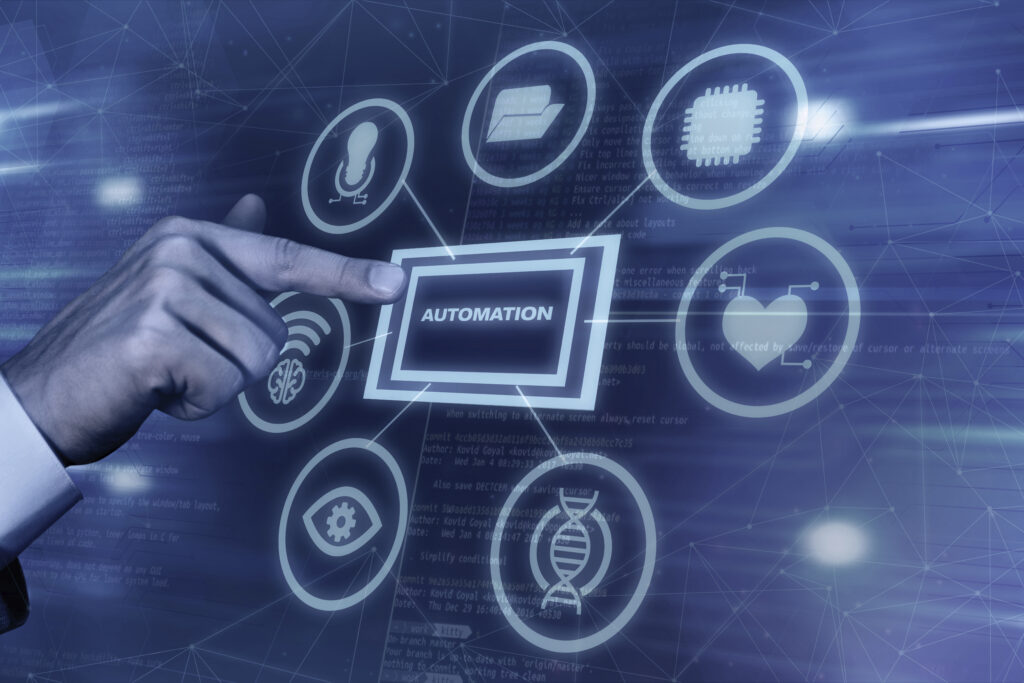Executives must decide whether to ride the revolutionary tide of technology in the Fourth Industrial Revolution or risk falling behind. Technology is changing civilization as we know it. Driven by artificial intelligence (AI) and machine learning (ML), intelligent automation (IA) is becoming a ubiquitous presence in every aspect of our lives, spanning from private areas to workplaces.
Intelligent Automation’s Evolution
IA was first limited to industrial processes, but it has quickly spread and is now playing a crucial role in many other company operations. The development of driverless cars, Google’s DeepMind, and IBM’s Watson are examples of how AI and ML have contributed to significant advancements. Even the simplest aspects of our everyday routines are now impacted by technology that was thought to be exclusive to corporate titans.
Businesses have realized the potential of IA, especially regarding RPA (Robotics Process Automation). Organizations have been implementing end-user process automation at a much higher rate since 2017. This is because these companies are seeing increases in production quantity and quality, as well as cost savings from the elimination of unproductive procedures.
The Motivating Factor: Minimizing Effort and Optimizing Output
In the context of business, automation usually starts with the intention of reducing work and increasing production. The goal is to get rid of dangerous, repetitive, and tiresome jobs where human productivity is negligible compared to that of robots. Up to 45% of present labour activities, according to recent studies, may be automated with the help of modern technologies and that is only the tip of the iceberg. The potential for automation is expected to grow rapidly as AI develops.
Notable instances highlight how intelligent automation improves productivity and speeds up processes faster than humans can, such as Amazon’s usage of Kiva robots for warehouse operations. The impact is felt in several industries, leading to changes in the types of jobs and corporate procedures.
Redefining Jobs: Moving From Advisory to Mundane
Traditional job positions are changing because of IA, moving toward more advisory and value-added responsibilities.
Examples:
- Mortgage-loan officers: Processing more loans by shifting their attention from paperwork to handling special cases.
- Healthcare: IA enables highly skilled robots to identify a variety of medical conditions, freeing up medical professionals to focus on more complex treatments and interventions.
Intelligent robots are starting to work with humans as collaborators, enhancing human capabilities and improving the standard of work in a variety of industries. Physicians may focus on enhancing public health, attorneys can use text-mining methods to expedite document review, and so on.
Is Your Company Prepared for Adoption by IA?
Problem-driven Methodology: Detecting Obstacles and Inadequacies
- Are there any obstacles preventing day-to-day operations?
- Which business procedures result in these obstructions?
- Which duties take up most of an employee’s time?
- What are the monotonous and recurring duties, and what is the time and effort required for them?
Solution-Driven Methodology: Enhancing Procedures for Excellence and Efficiency
- Which performance standards are more important?
- Which KPIs, or key performance indicators, have the most effects on operations?
- Which business procedures need to be completed more quickly?
- Which important personnel are involved in low-level work?
These methods provide a comprehensive viewpoint for determining the viability of automation. Intelligent automation can help firms achieve their goals of future process optimization or fix current inefficiencies.
Overcoming Obstacles to Employee Engagement and Productivity
Studies reveal that even though 71% of employees acknowledge the significance of their work, they are not actively involved in it. Intelligent automation offers a remedy to this alienation by releasing workers from tedious work and allowing them to concentrate on more important facets of their jobs.
Benefits:
- Improved Decision-Making: Employee decision-making is improved, and human intelligence is increased, creating a more engaged and productive workforce.
- Job Satisfaction: Financial advisors can spend more time assessing demands and presenting creative possibilities, while interior designers can move their focus from measurements to creative design solutions.
Effect on Customers: Using Automation to Improve Customer Experience
Intelligent automation has a significant effect on the customer experience in addition to providing internal benefits to businesses. Businesses may guarantee their clients receive exceptional service by devoting more time and resources to creative solutions.
Outcomes:
- Improved customer satisfaction
- Increased brand loyalty
- Enhanced revenue
Automation increases service accessibility while creating opportunities for complex solutions. The relationship between improved customer service, company expansion, and sustained brand recognition highlights the need for intelligent automation in the corporate environment.
Managing Dangers in the Automated Environment
As we enter a new era of automation, several important issues and dangers remain. Large-scale employment redistribution and automation give rise to worries about high human resource costs, job losses, and economic inequality.
Solutions:
- Proactive Approaches: Governments and organizations need to take a proactive approach by implementing policies to assist those who have lost their jobs to automation in finding new ones, retraining, or upskilling.
- Data Security: Concerns about user privacy and data security must be addressed. Legal and regulatory ramifications must be carefully considered to avoid potential problems.
The Intelligent Automation Necessity
In conclusion, the question of intelligent automation in businesses is not if, but when. Stakeholders include executives, governments, and the public; technological improvements have made it inevitable. Every step toward automation affects everyone; therefore, businesses need to approach this shift mindful of the societal, economic, and ethical ramifications.
Final Thoughts:
- Revolutionary Impact: Intelligent automation has a profoundly revolutionary effect on interactions between organizations and consumers as well as the workforce, extending beyond revenue and profit.
- Inclusive Strategy: It is the duty of companies to facilitate a smooth transition that promotes efficiency and creativity while giving priority to individuals’ and society’s overall well-being. Intelligent automation is a shared undertaking whose success depends on a deliberate and inclusive strategy.
Get your first IT Hardware & Software procurement experience with us. Our team of experts is there to help you.


